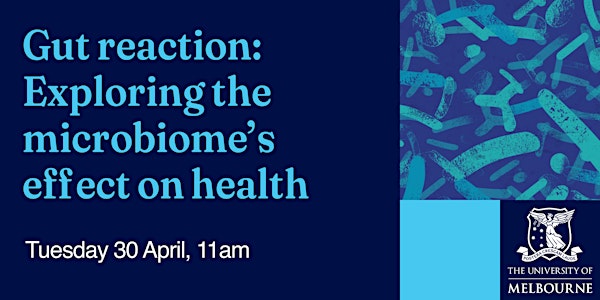
Gut reaction: Exploring the microbiome's effect on health
The importance of the microbiome, what impacts it and how it impacts you.
Date and time
Location
The Library and University Hall, Level 1
Old Quadrangle Parkville, VIC 3052 AustraliaAbout this event
- 1 hour 30 minutes
Organized by
Since 1862, the University of Melbourne has contributed to the health and wellbeing of society – training excellent clinicians and producing high-impact research that makes a real difference to people’s lives.
At 14th place on the Times Higher Education (THE) 2020 rankings for clinical, pre-clinical and health disciplines, the Faculty of Medicine, Dentistry and Health Sciences attracts some of the best and brightest minds in Australia and overseas. As part of the Biomedical Precinct, made up over 40 hospitals, medical research institutes, biotechnology organisations’ we are privileged to contribute to one of the largest innovation hubs in the world.
The University of Melbourne and Eventbrite collect your personal information to manage your registration and to contact you regarding this event. Your information may also be used by the University and Eventbrite for analysis, quality assurance and planning purposes. For further information please visit the University of Melbourne’s website and Eventbrite’s Privacy Policy.